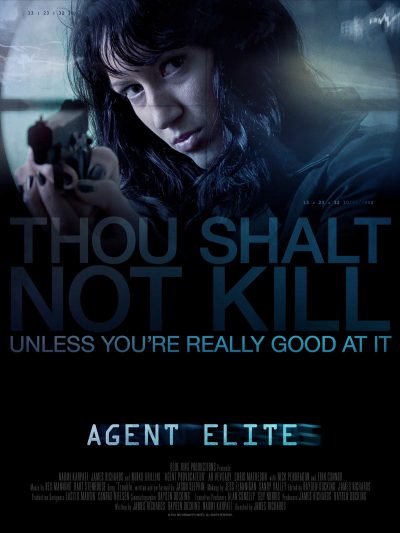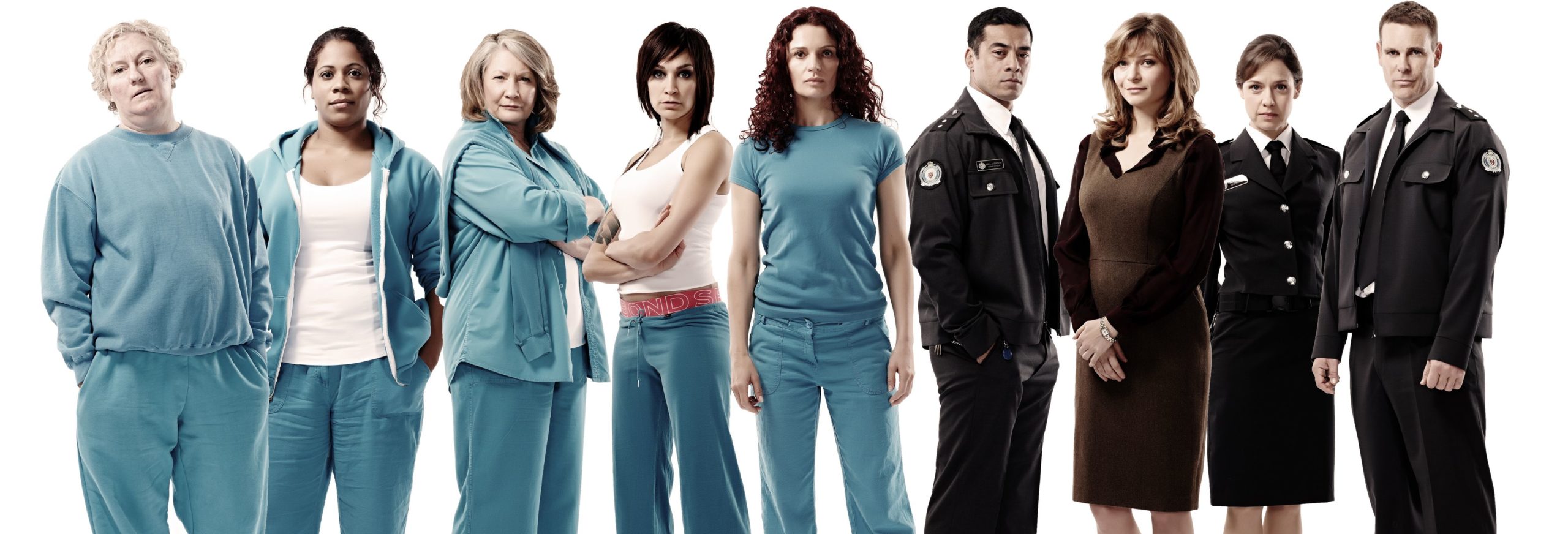 ★★★★
★★★★
“Sheilas behind bars.”
 Back in the eighties, there was an Australian women-in-prison soap opera called Prisoner Cell Block H. [It was called Prisoner on its home turf, but was renamed in the UK and US, to avoid confusion with The Prisoner] It ran for eight seasons, totalling 692 (!) episodes, and achieved a fair bit of cult status, mostly through late-night screenings on TV. Much of its reputation was based on “so bad it’s good” elements, such as the wobbly sets; a review calls it, “one of the most bizarre, violent, lesbian-fetishy-heart-warming dramas ever created.” The show concluded its run in 1986, but was never forgotten.
Back in the eighties, there was an Australian women-in-prison soap opera called Prisoner Cell Block H. [It was called Prisoner on its home turf, but was renamed in the UK and US, to avoid confusion with The Prisoner] It ran for eight seasons, totalling 692 (!) episodes, and achieved a fair bit of cult status, mostly through late-night screenings on TV. Much of its reputation was based on “so bad it’s good” elements, such as the wobbly sets; a review calls it, “one of the most bizarre, violent, lesbian-fetishy-heart-warming dramas ever created.” The show concluded its run in 1986, but was never forgotten.
More than 25 years later, the concept was rebooted in 2013 as Wentworth, and enjoyed a renaissance. While also running for eight seasons, rather than trash (not that there’s anything wrong with that, mind you!), this version proved to be remarkably well made. It likely helped that the remake’s production schedule here was rather less frantic, ending at exactly 100 episodes last October. The show is currently ranked by the IMDb in the top 250 TV series of all time, and was sold to over 90 countries, achieving a worldwide audience, thanks in part to its distribution on streaming services like Netflix and Amazon Prime.
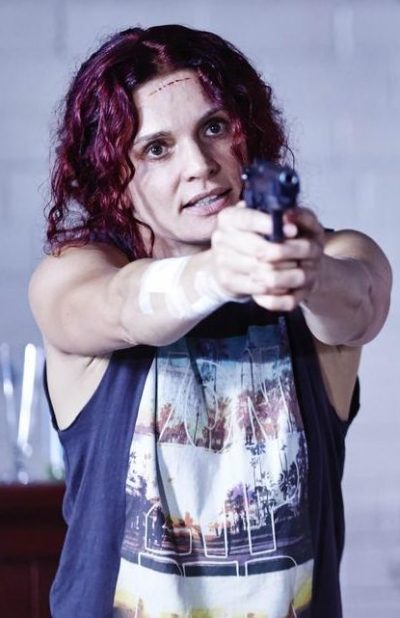 It spawned local remakes in a number of countries. The Dutch was the most successful, running for four seasons, but Belgium, Germany and Turkey also took the show and recreated it. [Here is as good a place as any to mention that back in 1982, there was a male spin-off of the original show called Punishment. Though it lasted only one season, the cast included some guy called Mel Gibson…] Indeed, the Turkish one, known on Netflix as The Yard, was reviewed here in August 2020. That review began, “I really must get round to reviewing Wentworth.” And eighteen months later, here we are…
It spawned local remakes in a number of countries. The Dutch was the most successful, running for four seasons, but Belgium, Germany and Turkey also took the show and recreated it. [Here is as good a place as any to mention that back in 1982, there was a male spin-off of the original show called Punishment. Though it lasted only one season, the cast included some guy called Mel Gibson…] Indeed, the Turkish one, known on Netflix as The Yard, was reviewed here in August 2020. That review began, “I really must get round to reviewing Wentworth.” And eighteen months later, here we are…
It’s a show I’ve thought about covering on a number of occasions over its run, but now that it’s finished, I feel I can finally do it justice. I definitely can’t argue with the acclaim it has received. For Wentworth features a slew of extremely strong female characters, including one of the most memorable villainesses in TV history, and maintained a high degree of dramatic quality from beginning to end. That’s rare for a series; even classics like Buffy dropped off after a certain point, with commercial motivations typically surpassing artistic ones. Not so here, with the eighth series virtually as strong as the first.
One element, which it does share with its predecessor, is that the setting is the “star”, rather than any performer. I think this certainly helped contribute to its longevity, and sustained the show’s freshness. If one of the actresses began to feel jaded, and wanted out, their character could be replaced by another. The prison scenario meant there were always new arrivals potentially coming in, and scope for departures too, without excessively disrupting the overall structure. If you look at many of the ultra-long running shows, e.g. Dr Who or the many incarnations of Law and Order, they have a similar ability to rotate their cast seamlessly.
Not to say there weren’t main characters – many of them with the names and/or backgrounds as their “ancestors” in Cell Block H. But they tended to have arcs across three or four years; few lasted the full eight, mostly on the guard side. This timeframes was long enough to allow for fulfilling development, without getting stale. The first such was Bea Smith (Cormack), who arrives at Wentworth after attempting to murder her husband, following years of abuse. She becomes involved in the struggle for “Top Dog” status – the role of the most powerful prisoner – between two existing inmates, only to end up becoming Top Dog herself. However, it’s a lonely position, where you always have to watch your back, and allies can suddenly become enemies.
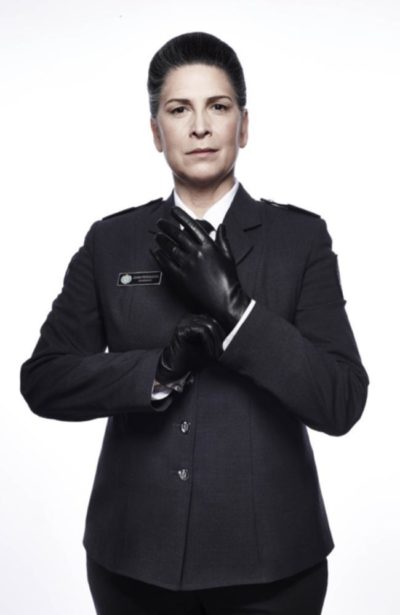 One such was the character mentioned above: Joan Ferguson (Rabe), known as ‘The Freak’ (left). She joined the show as the new governor of Wentworth in season 2, and was, to be blunt, a clinical psychopath, devoid of empathy and incredibly manipulative. She was also very smart, a lethal combination. However, it’s not enough to save her from ending up a prisoner in the jail herself. The first episode of season 5, where Ferguson is released into the general population was, for me, peak Wentworth, and one of the best 45 minutes of television I’ve seen, in any genre.
One such was the character mentioned above: Joan Ferguson (Rabe), known as ‘The Freak’ (left). She joined the show as the new governor of Wentworth in season 2, and was, to be blunt, a clinical psychopath, devoid of empathy and incredibly manipulative. She was also very smart, a lethal combination. However, it’s not enough to save her from ending up a prisoner in the jail herself. The first episode of season 5, where Ferguson is released into the general population was, for me, peak Wentworth, and one of the best 45 minutes of television I’ve seen, in any genre.
Remarkably, she didn’t just survive this reversal of fortune, but thrived. She took over as Top Dog. until an escape plan misfired, ending in her being buried alive by long-serving prison officer Will Jackson (Robbie Magasiva)). But you can’t keep a good villainess down, though it appeared the trauma led to amnesia, with Ferguson subsequently using a different name and with a completely different personality. Was this genuine, or another of her ruses? I couldn’t possibly reveal that. What I will do though, is laud a glorious performance by Rabe, who at six feet tall, has a remarkable physical presence, backed up by ferocious intensity. She’s Cersei Lannister on steroids. And without the incest.
In general, it’s perhaps less exploitative than you might expect, with nudity only when genuinely necessary to the plot, rather than for titillation purposes. On the other hand, the show does not soft-pedal the brutality of prison life, with violence and death a common occurrence. Inmates tend to handle their own infractions internally, the Top Dog having the ability to impose punishments for theft, deceit or, perhaps the worst offense of all, “lagging” i.e. talking to prison authorities. It would definitely be rated a hard R, purely for its authentically no-holds barred language. Boy, do the Aussies love themselves a good c-bomb – even more than us Scots!
There were, admittedly, times where the story-lines seemed to get away from the creators. A few threads did appear to be ended, rather than properly resolved. But considering the 70+ hours of television the show represented, such misfires proved remarkably few. The writers definitely had a talent for juggling multiple plot threads and keeping them all moving forward simultaneously. In the end though, it was the actresses (and actors) who made this show what it was, and which kept us coming back for the best part of a decade. If not our favourite show ever on Netflix, it’s definitely up there with the very best.
Creators: Lara Radulovich and David Hannam
Star: Danielle Cormack, Pamela Rabe, Kate Atkinson, Katrina Milosevic
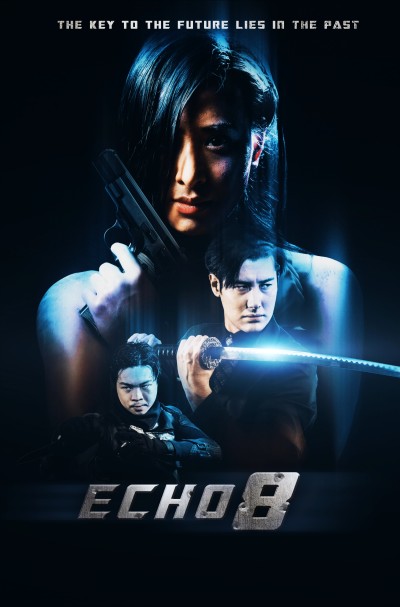 This bills itself as “Australia’s first female-led independent action movie”. Seems a bit of a stretch, considering how many films we’ve reviewed from Down Under previously, such as Avarice. Heck, Agent Provocateur had a similar plot in 2012. However, this has had a lengthy trip to the screen, shooting having started prior to the COVID-19 pandemic in early 2020. Four years later, it’s finally available, and is clearly a labour of love for those involved, not least Tran who wore multiple heads on the production. Between that and the limited resources, I’m reluctant to pan it savagely, but the truth is, even with a rating which is cutting it slack for these reasons, the end product is still not very good. It’s more “shows some potential” than “would recommend.”
This bills itself as “Australia’s first female-led independent action movie”. Seems a bit of a stretch, considering how many films we’ve reviewed from Down Under previously, such as Avarice. Heck, Agent Provocateur had a similar plot in 2012. However, this has had a lengthy trip to the screen, shooting having started prior to the COVID-19 pandemic in early 2020. Four years later, it’s finally available, and is clearly a labour of love for those involved, not least Tran who wore multiple heads on the production. Between that and the limited resources, I’m reluctant to pan it savagely, but the truth is, even with a rating which is cutting it slack for these reasons, the end product is still not very good. It’s more “shows some potential” than “would recommend.”




 This starts off strong, with an attention grabbing scene where a woman gets a visit from a plumber. She offers him a glass of water, and… Things do not go as expected. For the woman is Jessie (Shay), a psychiatrist on a mission. She has made it her purpose in life to punish paedophiles whom she feels have been too lightly punished by the law. The man is one such, and it does not end well for him. Specifically, he is stabbed, and buried in a shallow grave, deep in the Australian outback. Safe to say the film has got my attention. Unfortunately, it’s more or less downhill all the way from here.
This starts off strong, with an attention grabbing scene where a woman gets a visit from a plumber. She offers him a glass of water, and… Things do not go as expected. For the woman is Jessie (Shay), a psychiatrist on a mission. She has made it her purpose in life to punish paedophiles whom she feels have been too lightly punished by the law. The man is one such, and it does not end well for him. Specifically, he is stabbed, and buried in a shallow grave, deep in the Australian outback. Safe to say the film has got my attention. Unfortunately, it’s more or less downhill all the way from here.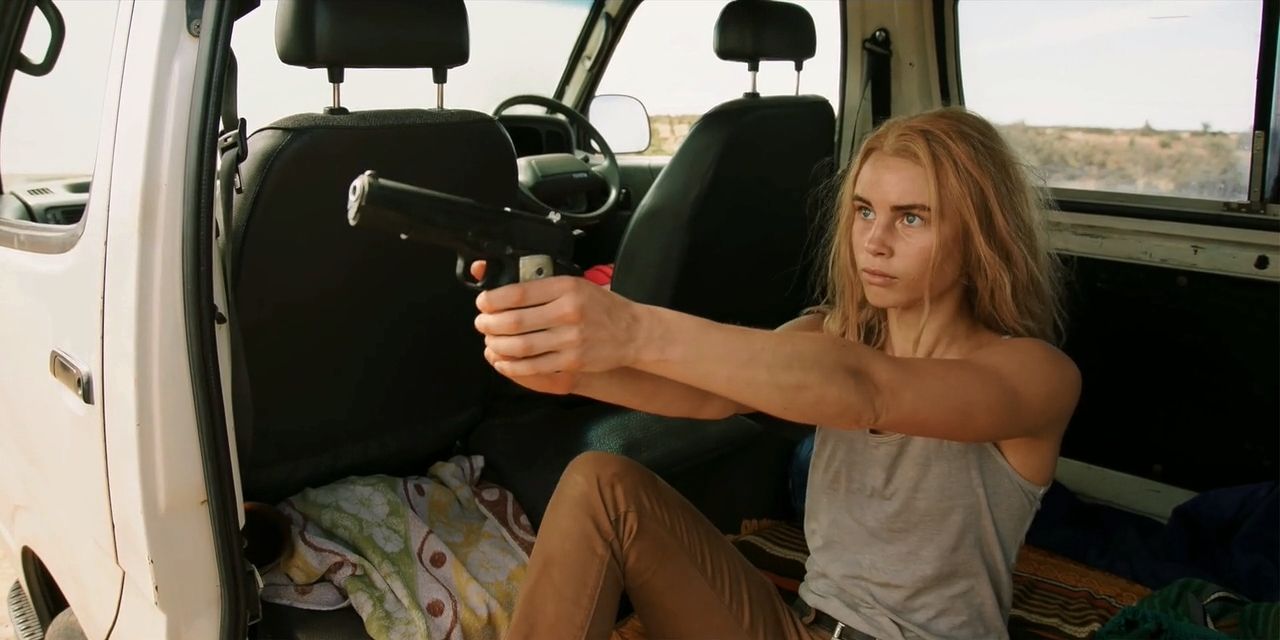 ★★★★
★★★★ Here is a confession: I have never seen the acclaimed two Wolf Creek movies (2005 and 2013 – a third movie is planned). The reason was simple: I just didn’t care for ultra-cruel slashers from Australia. After watching this TV-spin off I might revise my opinion and catch up with them; if they are as good as this TV series I definitely want to see them!
Here is a confession: I have never seen the acclaimed two Wolf Creek movies (2005 and 2013 – a third movie is planned). The reason was simple: I just didn’t care for ultra-cruel slashers from Australia. After watching this TV-spin off I might revise my opinion and catch up with them; if they are as good as this TV series I definitely want to see them!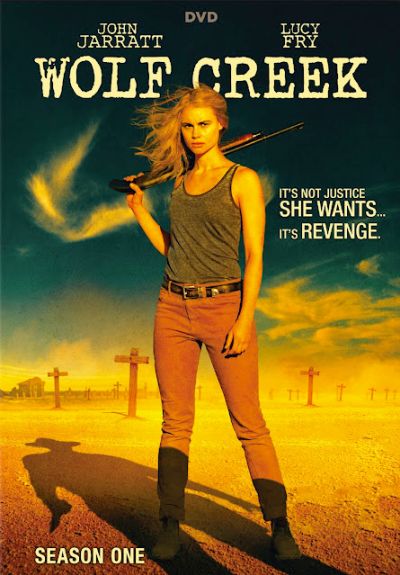 I have to say that this series really surprised me. I had bought it based solely due to the cool cover photo and didn’t expect much more than a probably over-gruesome third-rate slasher, I mean, is Australia really famous for great serial killer psycho thrillers? Though there is the very good Stacy Keach and Jamie Lee Curtis thriller from 1981, Road Games. As a matter of fact, this short (six episodes) series blew me away with its astounding quality. When you read the above, you might be forgiven for getting the impression the whole thing will come across as a bit cheap in its storytelling, or the motivation of its characters – a bit schlocky in general.
I have to say that this series really surprised me. I had bought it based solely due to the cool cover photo and didn’t expect much more than a probably over-gruesome third-rate slasher, I mean, is Australia really famous for great serial killer psycho thrillers? Though there is the very good Stacy Keach and Jamie Lee Curtis thriller from 1981, Road Games. As a matter of fact, this short (six episodes) series blew me away with its astounding quality. When you read the above, you might be forgiven for getting the impression the whole thing will come across as a bit cheap in its storytelling, or the motivation of its characters – a bit schlocky in general.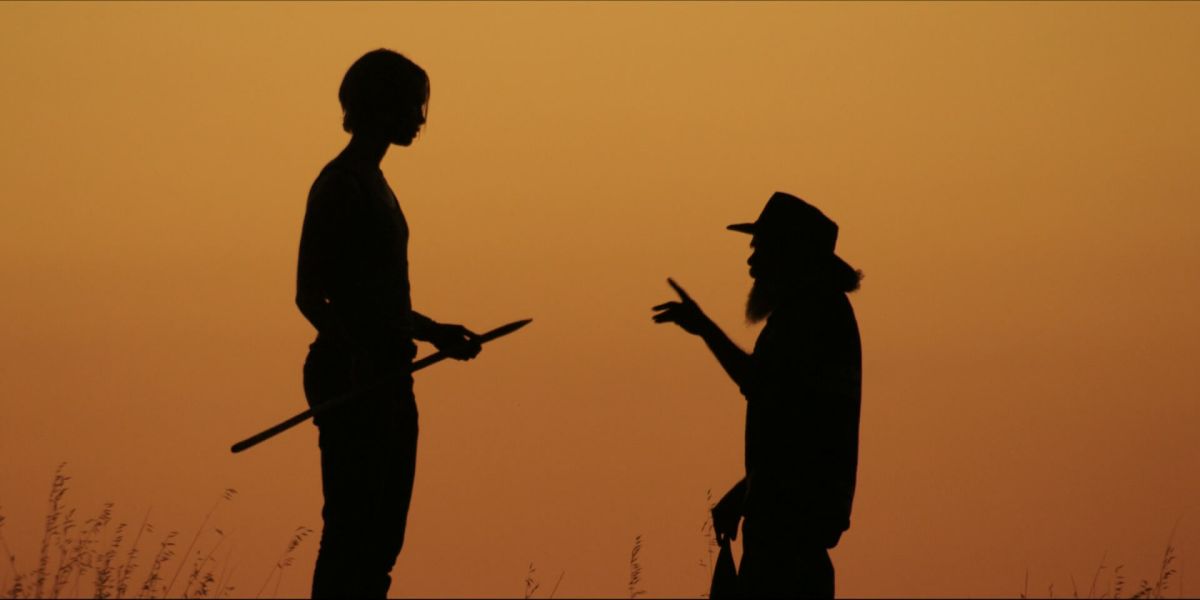 Eve is repeatedly confronted by these criminals, or wanna-be-rapists who see a normal dressed woman as an offer, and experiences family tragedies that actually form the core of the narrative. She is not without help though. As well as the policeman on her trail who reluctantly starts to cover-up for her, there is a criminal whom she meets in the desert, an old Aborigine who fits into the classic mentor role, a colleague in a bar and she even gets a canine companion. Though the question always lingers while watching the show: Will she get her revenge? What will she do when meeting the man who killed her family? Does she even have a chance against an experienced, sadistic killer like Mick?
Eve is repeatedly confronted by these criminals, or wanna-be-rapists who see a normal dressed woman as an offer, and experiences family tragedies that actually form the core of the narrative. She is not without help though. As well as the policeman on her trail who reluctantly starts to cover-up for her, there is a criminal whom she meets in the desert, an old Aborigine who fits into the classic mentor role, a colleague in a bar and she even gets a canine companion. Though the question always lingers while watching the show: Will she get her revenge? What will she do when meeting the man who killed her family? Does she even have a chance against an experienced, sadistic killer like Mick?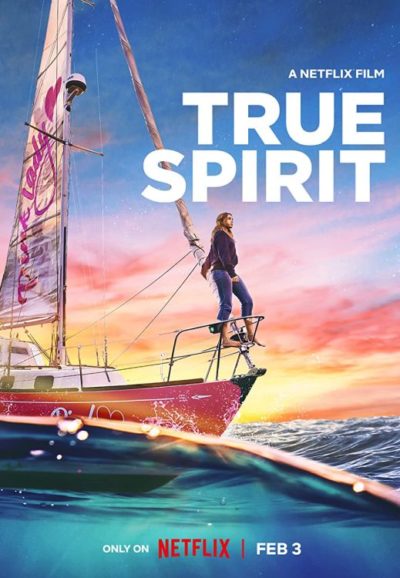 This blandly inspirational tale from Australia is based on real events. In 2009, sixteen-year-old Jessica Watson (Croft) set sail out of Sydney Harbour, intending to become the youngest person ever to sail around the world solo and unassisted. 210 days later, she returned to Sydney safely. There: I’ve spoiled it for you. Oh, alright: in between departure and arrival, stuff happens. There is also some stuff which happens before she leaves, with certain parties questioning whether she is fit to carry out such a dangerous voyage, citing her lack of age and ocean-going experience. A close encounter between Jessica’s boat the Pink Lady and a freighter, while on a test sailing trip, only seemed to confirm there was good reason for concern.
This blandly inspirational tale from Australia is based on real events. In 2009, sixteen-year-old Jessica Watson (Croft) set sail out of Sydney Harbour, intending to become the youngest person ever to sail around the world solo and unassisted. 210 days later, she returned to Sydney safely. There: I’ve spoiled it for you. Oh, alright: in between departure and arrival, stuff happens. There is also some stuff which happens before she leaves, with certain parties questioning whether she is fit to carry out such a dangerous voyage, citing her lack of age and ocean-going experience. A close encounter between Jessica’s boat the Pink Lady and a freighter, while on a test sailing trip, only seemed to confirm there was good reason for concern.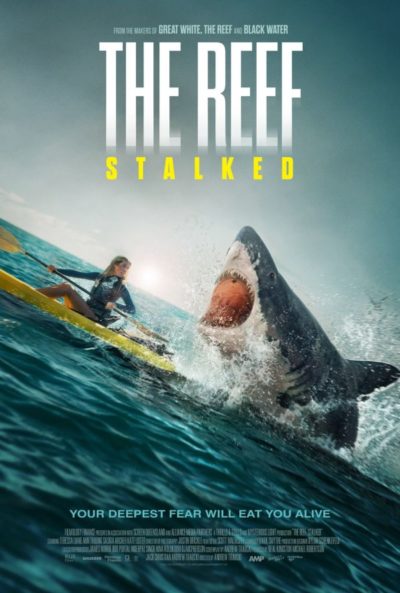 This is a sequel to Traucki’s 2010 film, The Reef, whose synopsis reads: “A sailing trip becomes a disaster for a group of friends when the boat sinks and a white shark hunts the helpless passengers.” I haven’t seen it, yet based on that, I’m not sure I need to. Replace “sailing” with “kayaking”, and you’re more or less here. Perhaps lob in a bit borrowed from
This is a sequel to Traucki’s 2010 film, The Reef, whose synopsis reads: “A sailing trip becomes a disaster for a group of friends when the boat sinks and a white shark hunts the helpless passengers.” I haven’t seen it, yet based on that, I’m not sure I need to. Replace “sailing” with “kayaking”, and you’re more or less here. Perhaps lob in a bit borrowed from 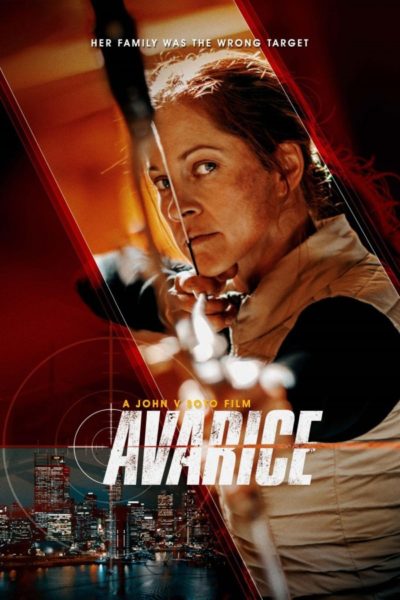 I’m not 100% sure, but I suspect this may be the first film I’ve tagged as both in the “sport” and “home invasion” genres. It’s not a crossover you see every day. However, it is fair comment in this case, even if takes its own sweet time to get there. Kate Matthews (Alexy) has various bits of static in her life. Her husband, Ash (Ford), spends too much time at his Very Important job in high finance, rather than on their relationship. Daughter Susan is being a teenager. Kate just lost an archery tournament. Oh, and their house has been invaded by Reed (Nell) and her band of thugs, who are now intent on forcing Ash to transfer thirty million dollars into their offshore bank-accounts.
I’m not 100% sure, but I suspect this may be the first film I’ve tagged as both in the “sport” and “home invasion” genres. It’s not a crossover you see every day. However, it is fair comment in this case, even if takes its own sweet time to get there. Kate Matthews (Alexy) has various bits of static in her life. Her husband, Ash (Ford), spends too much time at his Very Important job in high finance, rather than on their relationship. Daughter Susan is being a teenager. Kate just lost an archery tournament. Oh, and their house has been invaded by Reed (Nell) and her band of thugs, who are now intent on forcing Ash to transfer thirty million dollars into their offshore bank-accounts.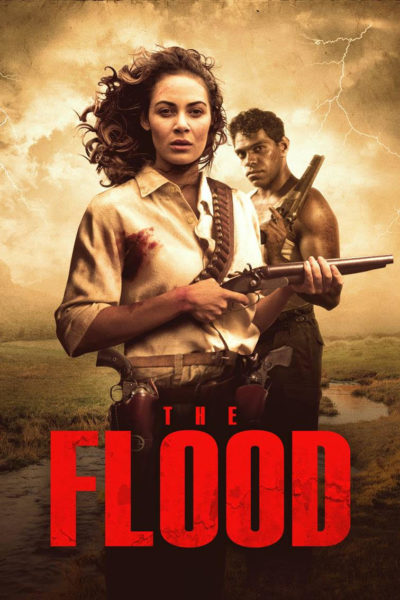 The first eighty or so minutes of this are really good: powerful, committed and extremely angry film-making. And justifiably so, I would say. Unfortunately, the film runs for a hundred and seventeen minutes, and definitely goes off the rails towards the end. The gritty realism which was perhaps the movie’s strongest suit is replaced by odd fantasy sequences, such as the fugitive couple suddenly dressed, in the middle of a forest, as if they were attending a Victorian embassy ball. I’m not certain what the point of these elements, or the anachronistic pop songs were. I am certain that they didn’t enhance my appreciation of the film in any way, and that’s a shame, considering how assured it had been in the early going.
The first eighty or so minutes of this are really good: powerful, committed and extremely angry film-making. And justifiably so, I would say. Unfortunately, the film runs for a hundred and seventeen minutes, and definitely goes off the rails towards the end. The gritty realism which was perhaps the movie’s strongest suit is replaced by odd fantasy sequences, such as the fugitive couple suddenly dressed, in the middle of a forest, as if they were attending a Victorian embassy ball. I’m not certain what the point of these elements, or the anachronistic pop songs were. I am certain that they didn’t enhance my appreciation of the film in any way, and that’s a shame, considering how assured it had been in the early going.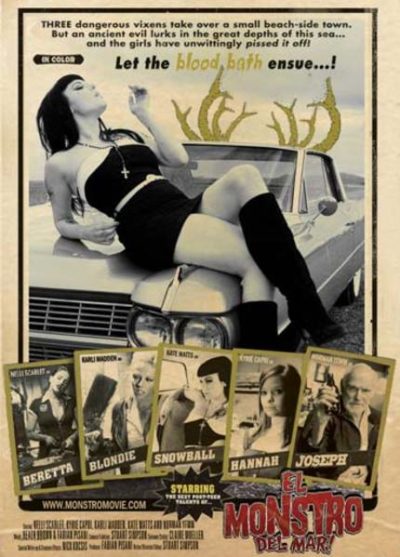 I could have sworn I’ve seen this before, but a search of the reviews suggest otherwise! This is an Australian pastiche of a couple of different things. Perhaps the most obvious influence is
I could have sworn I’ve seen this before, but a search of the reviews suggest otherwise! This is an Australian pastiche of a couple of different things. Perhaps the most obvious influence is  ★★★★
★★★★ It spawned local remakes in a number of countries. The Dutch was the most successful, running for four seasons, but Belgium, Germany and Turkey also took the show and recreated it. [Here is as good a place as any to mention that back in 1982, there was a male spin-off of the original show called Punishment. Though it lasted only one season, the cast included some guy called Mel Gibson…] Indeed, the Turkish one, known on Netflix as The Yard, was
It spawned local remakes in a number of countries. The Dutch was the most successful, running for four seasons, but Belgium, Germany and Turkey also took the show and recreated it. [Here is as good a place as any to mention that back in 1982, there was a male spin-off of the original show called Punishment. Though it lasted only one season, the cast included some guy called Mel Gibson…] Indeed, the Turkish one, known on Netflix as The Yard, was  One such was the character mentioned above: Joan Ferguson (Rabe), known as ‘The Freak’ (left). She joined the show as the new governor of Wentworth in season 2, and was, to be blunt, a clinical psychopath, devoid of empathy and incredibly manipulative. She was also very smart, a lethal combination. However, it’s not enough to save her from ending up a prisoner in the jail herself. The first episode of season 5, where Ferguson is released into the general population was, for me, peak Wentworth, and one of the best 45 minutes of television I’ve seen, in any genre.
One such was the character mentioned above: Joan Ferguson (Rabe), known as ‘The Freak’ (left). She joined the show as the new governor of Wentworth in season 2, and was, to be blunt, a clinical psychopath, devoid of empathy and incredibly manipulative. She was also very smart, a lethal combination. However, it’s not enough to save her from ending up a prisoner in the jail herself. The first episode of season 5, where Ferguson is released into the general population was, for me, peak Wentworth, and one of the best 45 minutes of television I’ve seen, in any genre.